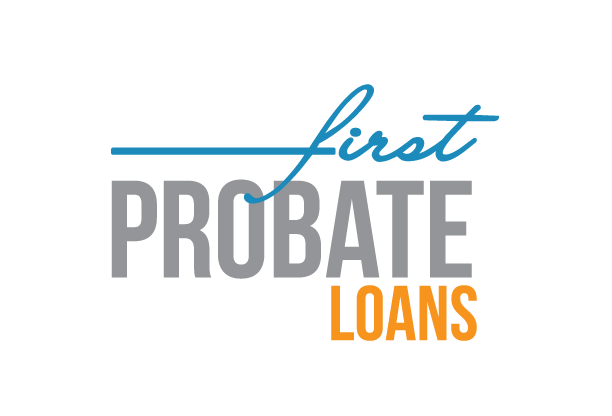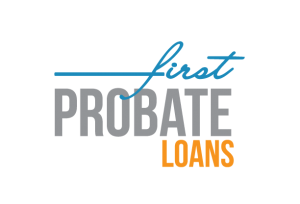Frequently Asked Questions for Borrowers
 Q: What California probate (or trust or estate) loan financing options are available for fiduciary and individual borrowers?
Q: What California probate (or trust or estate) loan financing options are available for fiduciary and individual borrowers?
A: For estate or trust realty, borrowers are qualified similar to traditional mortgage lending, based on income, creditworthiness and other factors. Usually, borrowers may draw upon as much as 80 percent of the property’s value (occasionally more). Strong borrowers have a better chance of obtaining a loan, but “subprime” borrowers (with less-than-perfect credit, low or hard-to-prove income, or little or no savings) may still qualify for attractive financing at competitive rates.
Q. Who can borrow (or take a California probate loan) on a trust or estate property?
A. The borrower must be the person who has responsibility, along with sufficient legal authority, over the property. This usually is the estate administrator, executor, trustee or similar.
Q. How do borrowers qualify for a California trust or estate loan?
A. That depends on the program. Borrowers usually select among equity-only programs and other programs. As with any mortgage loan or other loan, good credit and sufficient provable income help any borrower qualify for the best rates and terms.
Q: What must an attorney do to obtain California probate loan financing for a client?
A: An attorney must be prepared to take several steps to secure financing for a client. These include:
- Contacting a lender to initiate and follow up on fiduciary loan proceedings, as determined with the client. (Most attorneys are most satisfied with the process if they choose a lender to work with repeatedly over time.)
- Obtaining a written buyout agreement from affected parties (if necessary).
- Requesting a written financing plan from the lender.
- Completing specific noticing or court actions, as required.
Q: What financing options are available for fiduciaries and individuals?
A: Different California fiduciary loan options are available to each participant in a probate property situation. Lenders that advertise heavily on price usually offer only conventional mortgages, which offer the most favorable rates and terms. But to qualify, borrowers must fit traditional lending guidelines relating to risk, income, savings and property condition, just to name a few. However, not all borrowers sign personally, and terms vary depending on the situation.
- Executors and administrators frequently can obtain equity-based mortgages for up to 50-65% of the property value, depending on the type and quality of the property and the complexity of the case. Interest rates are typically 2.5-4% above the equivalent 30-year fixed rate for a conventional loan for a fully qualified, “A” paper borrower. Mortgage terms are usually shorter than for conventional loans at 10-15 years or even less.
- Conservators, guardians, trustees & other fiduciaries generally find terms to be similar to loans for executors and administrators. Lenders use the protective equity remaining in the property as security. Professional fiduciaries will receive special consideration (First Probate Loans is a PFAC sponsor). In contrast, property caught up in a major adversarial situation or even litigation may dissuade a would-be lender. Successor trustees may find a conventional loan if a borrower qualifies and signs personally.
- Individuals (who do sign personally) may borrow up to 80% of property value, and sometimes more, depending on their personal credit profile and other factors.
Q: Can’t I just apply for a probate or trust loan from a bank or credit union if I’m an heir of an estate in probate?
A: You can ask, but most traditional financial institutions and mortgage companies find these loans too risky to conform to their guidelines, and they rarely have expertise in lending on estate- or trust-owned property. These very specialized loans require particular expertise, which is best provided by a qualified probate loan company.
Q. Do low credit scores prevent borrowers from getting a California probate loan?
A. In most cases, credit scores do not prohibit a loan to an estate or trust. These loans are driven more by the property’s equity than by the individual’s credit history.
Q: What if available financing falls short of giving all parties cash?
A: An alternative to distributing cash could be a promissory note or other non-cash asset. If the property is in poor condition, loans may be limited for trust or estate loans as well as for third-party buyers.
Q. Is it possible to receive a cash advance from a trust or estate?
A. Advances are available on a limited basis to beneficiaries and to intestate heirs.



Why is the process for borrowing so tedious?
Thanks for the article! Really great to have answers to the most common questions!
You guys really made this information clear! Thanks!
Thanks for posting this! It’s so great to have clear and helpful answers!
This really helped me feel more comfortable and knowledgeable about probate loans. Thank you so much for posting this!
This is great information! Thanks!
Helpful information about probates and its process!
Good to know that borrowers with not-so-great credit scores or really low credit scores still have a chance of getting property loans with alternative financing options to help ease the financial burden.
Makes me feel safe to know that the company goes to preventive measures to avoid misuse of probate loans for security reasons!
What are some of the other qualifications to be a borrower?
I assumed a low credit score automatically meant you could not receive a loan or that you could only get a loan at a high rate. Good to hear the difference between that and the process of getting a probate loan!
Thanks for compiling these info here!
Would there be a situation where low credits scores effected obtaining a California probate loan?